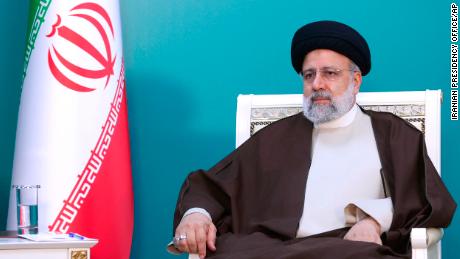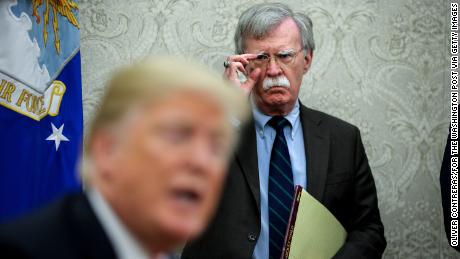Cairo (CNN)"Yes, we can!" an Egyptian friend bellowed over the phone to me after hearing Barack Obama's June 2009 speech in Cairo.
I was here, in the Egyptian capital, to cover that speech. Almost ten years later I returned to cover another "keynote" speech by an American official -- this time, by US Secretary of State Mike Pompeo.
In the intervening ten years, Egypt has come full circle. In 2011, a popular revolt ended the nearly 30-year-old sclerotic regime of Hosni Mubarak, followed by the country's first and only democratic presidential election in Egypt's 5000-year history. Then, a military coup and a bloody crackdown ensued. As many old friends and human rights organizations attest, the Egyptian state is far more oppressive than it was ten years ago.
When Pompeo delivered his address, "The United States: A Force for Good in the Middle East," on Thursday, he did so in a country where skepticism has replaced optimism when it comes to US officials bearing rhetorical gifts.
"I don't believe them anymore," veteran political commentator Hisham Kassem told me after listening to Pompeo's speech.
"(He) started off by bad mouthing Obama for his policies. It was bad enough for Obama to come here and bad mouth the Bush administration, but this is too much. Every administration comes here to bash the previous one," Kassem said.
"It's not statesmanship," he added.
While Obama did not specifically name Bush in his 2009 remarks, he made a clear distinction between his vision and that of his predecessor's.
Pompeo used his platform to blast Obama for saying "the United States and the Muslim World needed a 'new beginning'" following eight years of George W. Bush's administration and its wars in Afghanistan and Iraq. Pompeo promised that "the age of self-inflicted American shame is over, and so are the policies that produced so much needless suffering."
Now, said Pompeo, "comes the real 'new beginning.'"
But where is the "new?" If anything, Pompeo's speech suggests that the US -- like Egypt -- has also gone full circle, returning to the days when loyalty and stability (and now the commitment to the "war on terror") trump all else.
Glaringly absent in his 15-page address were references to the dismal state of human rights in the region, where the vast majority of people live under corrupt, authoritarian regimes.
It's worth pointing out that many of those regimes are close allies of the United States.
That omission caught the eye of commentator Wael Eskandar.
"In the name of fighting terrorism, he's supporting the despotic leaders of the region. His message is clear: the US will intervene to serve its myopic interests and all countries in the region have to fall in line," Eskandar told me.
The government of Egypt, led by President Abdel Fattah el-Sisi, has been an enthusiastic supporter of the Trump administration's anti-terror rhetoric, so much so that Kassem quipped, "they're turning this country into the 'Egyptian Arab Republic for Countering Terrorism.'"
Side by side with the war on terror in the speech was the challenge of containing Iran's influence in the region. Pompeo mentioned Iran more than 25 times.
Iran is a long way away from Egypt, which has enough troublesome neighbors -- including Hamas-run Gaza and chaotic Libya -- to occupy its attention.
While not condoning Iran's record, Cairo analyst Timothy Kaldas rejects the notion that Iran has a monopoly on evil, while America's allies are all goodness and light. Saudi Arabia, he says, "has also ravaged Yemen, creating what the UN describes as the world's worst humanitarian crisis where the population struggles with a cholera outbreak and food shortages that are leading to widespread starvation."
Eskandar bluntly summarized his thoughts on the speech, saying: "Today it felt that the US is bent on empowering tyrants in pursuit of its animosity towards Iran, no matter what the cost. Sadly, the cost we pay here is US sanctioned injustice and loss of our freedom."
When I listened to Obama's speech, I, like many others here, nodded my head and agreed the Middle East needs a new beginning.
When I listened to Pompeo speak on Thursday, I once again agreed that the Middle East needs a new beginning.
But it wasn't in that speech.




















